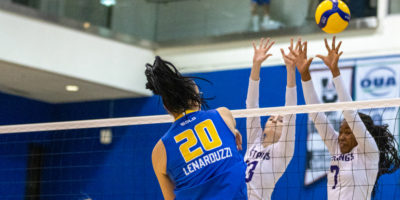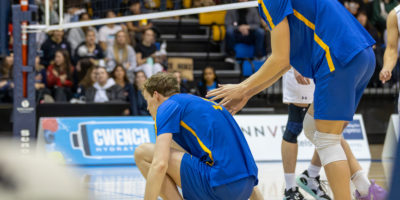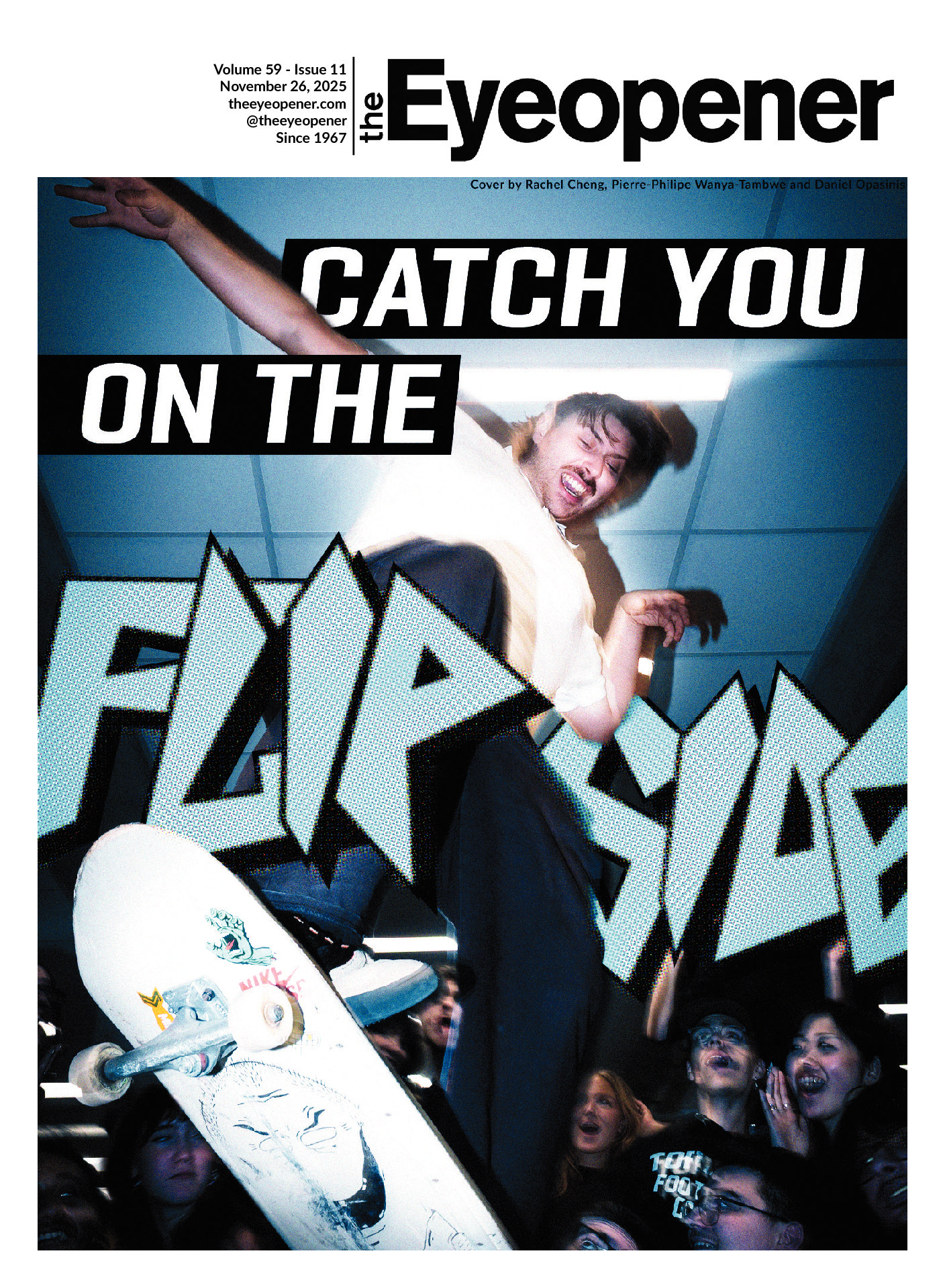By John Shmuel and Cassandra Jowett
A controversial Solidarity for Palestinian Human Rights booth delayed the announcement of Campus Caravan winners, after it was revealed a complaint had been made to the Office of Discrimination and Harassment Prevention.
What’s more, some faith-based groups are upset that they were deliberately separated from the rest of the caravan, a cultural display of student groups.
The winners are not expected to be announced until a meeting of the executives of all student groups on Apr. 8. Mohammed Halawani, a member of the board of governors and a judge at the Campus Caravan, confirmed that a number of complaints were made, but couldn’t disclose who had made them.
“We’re still investigating and speaking to all parties involved,” he said. The SPHR booth was designed to resemble an Israeli checkpoint, with a military-style tent erected behind it, and two soldiers with Stars of David on their arms posing as guards.
Inside the tent, the group played footage from the movie Occupation 101, which documents Palestinian life under Israeli occupation.
Placards reading Boycott Israeli Apartheid were plastered on the wall inside. Isaac Elfaks, co-president of Hillel, said he thought SPHR was wrong to erect the display at Campus Caravan.
“I think it goes against the spirit of the Campus Caravan,” he said. “[The display] was used to make a political statement — Campus Caravan is about calling attention to the diversity and culture on campus.”
He added that several students had approached Hillel to voice concern over the display. Fatima Abbas, President of SPHR, said she was shocked that there had been complaints.
“Students from other campus groups were telling us how good of a job we did. No one approached us to complain,” she said. SPHR decided to make the display to create curiosity, Abbas said, adding “we wanted to do something different this year.”
According to Halawani, judges were told of the complaints after the conclusion of Campus Caravan. He also defended the RSU’s decision to segregate faith-based displays from the rest of the caravan, a move which angered some of the groups.
Unlike past years, where all RSU student groups shared the second floor on the Hub cafeteria, faith-based groups were forced to form an independent “Caravan of Faiths” one floor below in the Credit Union lounge.
“We were upset because this event is supposed to be about uniting, but this doesn’t unite at all,” said Sheila Lam, an executive member of the Winner’s Fellowship.
Unlike the groups in the cafeteria, those in the lounge weren’t allowed to play music because they faced the Alterna Savings and Credit Union offices.
Lam said she feels the Ryerson community wasn’t aware of her group’s location, and that the separation prevented members of different groups from seeing each other’s displays.
“The area that was chosen wasn’t high traffic. We didn’t like it,” she said. However, Halawani said the separation was simply a space allocation issue, and that it made sense to put the faith-based organizations together because they are the largest contingent.
“Space is the biggest problem Ryerson has right now,” Halawani said. He said the RSU is looking at alternative venues for the Campus Caravan in the future, such as the gym or the student campus centre.
Not all groups, however, were upset. Terra Leavens, a staff member of Campus for Christ, said they aren’t worried about it from a recruitment perspective — yet.
“The Campus Caravan in September is the bigger concern. If there is a separation then, that would concern me,” she said.











Leave a Reply